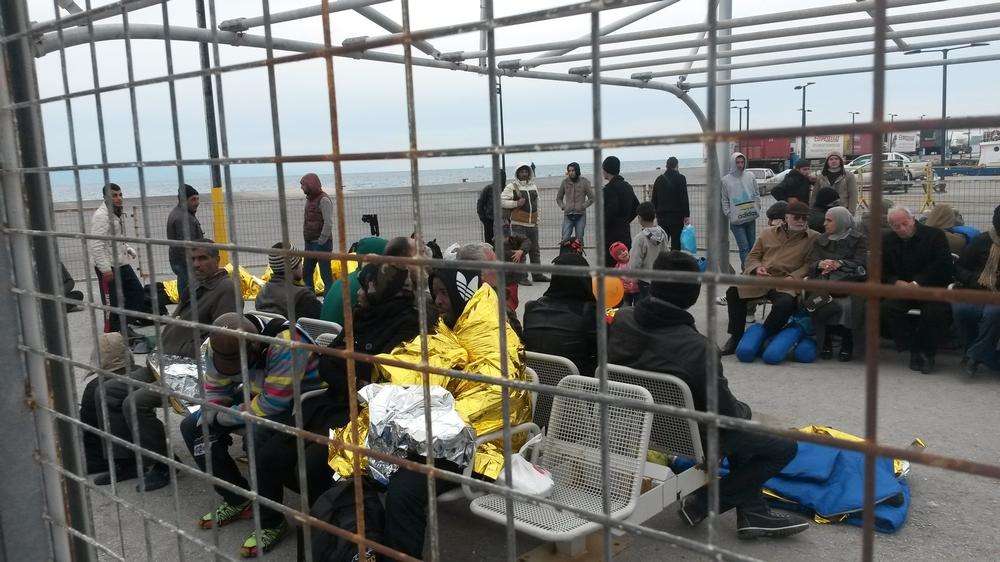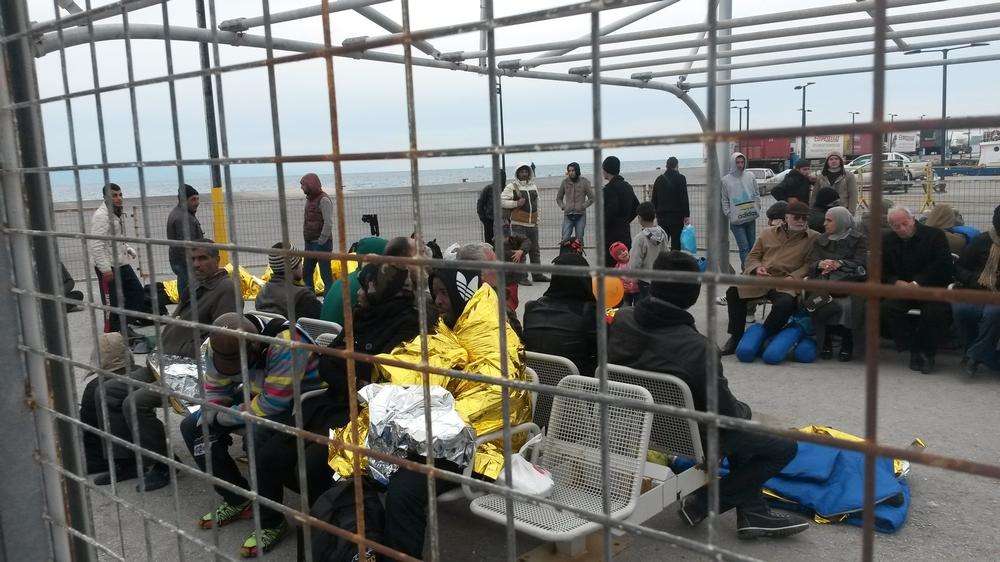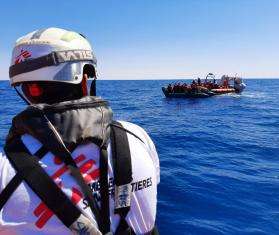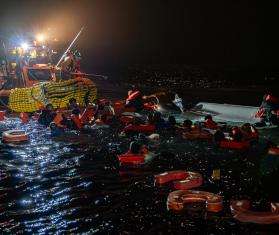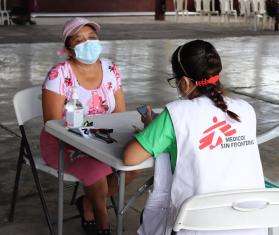ATHENS/NEW YORK—As an unprecedented number of refugees arrive in the Dodecanese islands, Greek and European Union authorities must urgently improve the conditions of their reception and prepare a contingency plan for a higher peak of arrivals this summer, the international medical humanitarian organization Doctors Without Borders/Médecins Sans Frontières (MSF) warned today.
An MSF team has witnessed an increasing number of refugees arriving in the Dodecanese islands since mid-March. Approximately 100 refugees have arrived per day in recent weeks, reaching the same level as a previous peak last summer, which is the season when arrivals are most frequent.
"A functioning reception system is urgently needed," said Stathis Kyrousis, MSF head of mission in Greece. "People should be provided with shelter and toilets, receive an organized food distribution, and have access to basic health care."
Currently, arriving migrants, asylum seekers, and refugees are left in poor conditions with limited access to health care. In Leros, an available reception facility has been left unused. In Kos, more than 200 people were crammed into a police station in the first week of April, including children and pregnant women. Some had to sleep in the courtyard of the police station while they waited for administrative procedures to be completed.
The refugees, asylum seekers, and migrants typically cross the Aegean Sea in small boats, in search of protection in Europe. The majority are Syrians, while others come from Afghanistan and sub-Saharan Africa. Closure of EU external land borders has left refugees and migrants no choice but to use the sea as their main route to apply for asylum in Europe.
MSF returned to the Dodecanese islands in mid-February to provide medical care and distribute essential relief items. Since its first intervention in the islands last year, MSF has made several requests to relevant ministries to improve the conditions of refugees, but there has been no improvement.
Meanwhile, the number of arrivals continues to increase sharply in comparison to last year. According to the latest figures from the authorities, the number of people arriving in the Dodecanese islands was 145 percent higher in January 2015 than in January 2014.
There may be a significant shift in the route that migrants are taking to Europe, as Italy recorded fewer arrivals in March, while Greece has recorded increases.
"This may be due to growing instability in Libya and the visa restrictions imposed on Syrians by Algeria and Lebanon," said Manu Moncada, MSF's operations coordinator for migration. "Syrians are left with very few options to reach Europe in search of protection."
MSF is extremely worried that the situation in the Greek islands will only get worse if nothing is done to prepare for the upcoming influx. The Greek and EU authorities must urgently agree on a contingency plan to cope with the needs that may emerge from this potential new trend.
"We are not yet in the peak season, which usually falls from July to September," Kyrousis said. "This certainly has rung the alarm bells for all of us that more people will need to be assisted in the summer months to come."
Currently in Kos, the MSF team is conducting screenings to identify the most vulnerable people, such as pregnant women and minors, and is providing medical consultations. From mid-March to the beginning of April, MSF conducted about 500 consultations and has distributed 500 kits of relief items such as soap, combs, toothbrushes, and towels, as well as 1,100 sleeping bags and 300 emergency blankets.
Since 2008, MSF has responded to the urgent medical and humanitarian needs of newly arrived migrants in Greece, as well as to asylum seekers and migrants in administrative detention. In collaboration with two Greek organizations, MSF is also providing medical rehabilitation for victims of torture in Athens.
See Also: MSF and MOAS to Launch Lifesaving Operation for Migrants in Mediterranean
